Heather McKiernan: NamUs is a national repository for long term missing, unidentified, and unclaimed persons cases. It is a really powerful tool that allows for cross matching and searching between both the missing persons and the unidentified persons records. It is the only national database that has a component to it that is limited viewable by the public. And this is really important because it helps empower family members to be more proactive in searching for their missing loved one. And it also helps to facilitate communication and data sharing between them and the agencies that are working on these cases.
Lucas Zarwell: We created a system that supports corners and medical examiners, law enforcement, and of course, the public to have something where they can compare missing persons records to unidentified remains and match those names.
Heather McKiernan: NamUs is so much more than just the database. The NamUs program itself is the cadre of experts with decades long experience in law enforcement, medicolegal death investigation, as well as allied forensic services that provide investigative and technical support to agencies working these cases.
Heather McKiernan: It is the ability to provide outreach and training to the public, as well as law enforcement and criminal justice entities that are working on these cases. And it is the free forensic and analytical services that help drive resolutions to these cases, bringing closure to family members and finally, names to the human decedents.
Heather McKiernan: NamUs provides odontology, fingerprint analysis, traditional DNA testing, anthropology, as well as investigative genetic genealogy. The National Institute of Justice funds all of these resources so that they are available at no cost to the criminal justice agencies working on these cases.
Heather McKiernan: In addition, we are constantly looking for new technologies that can help drive resolutions on these cases. For example, we have just added biogeographic ancestry testing services from forensic artists. We have projects looking at making identifications based on tattoo searches.
Heather McKiernan: We are looking into adding facial recognition software. We are just continually evaluating new technologies that are hitting the field and trying to bring those to the names program so that we can help get the most resolutions of these difficult and challenging cases.
Heather McKiernan: We work closely with the Federal Bureau of Investigation, particularly to provide our fingerprint services as well as our investigative genetic genealogy services. This is really part of our vision, which is one Department of Justice ensuring that all of our federal agencies are working closely together to best support this community and resolving these cases.
Heather McKiernan: The National Institute of Justice is the Research Development and Evaluation Agency for the United States Department of Justice and is dedicated to improving knowledge and understanding of crime and justice through science.
Heather McKiernan: This is achieved through their listen, learn, and inform model. They listen to the needs of the field, learn ways to meet those needs by funding research, development and evaluation projects, and then inform the community on what they've learned.
Heather McKiernan: Since its inception in 2007. NamUs has assisted with the resolution of over 45,000 missing unidentified and unclaimed persons cases. We would like to continue to build upon this success, and the best way to do that is to ensure that all appropriate long term missing and unidentified persons cases are entered into the database.
Heather McKiernan: One of the greatest challenges the criminal justice community faces is the sheer volume of missing and unidentified persons cases. Adding to that is the number of cases that cut across jurisdictional boundaries and the existence of disparate databases that housed these records.
Heather McKiernan: NamUs really addresses this issue by facilitating communication and searching capabilities for missing and unidentified persons cases. The more cases entered into the system and the more resources we have to support these cases, the more solves that we're going to be able to help generate.
Lucas Zarwell: Names serves basically the disabled in a way by giving them a name and having them be identified is really, I think, a human right.
Lucas Zarwell: The system helps professionals that are charged with the responsibility of identifying as individuals a tool that they can use to make sure that that happens so that we're, you know, bringing closure to the families of the missing and to ensure that that decision gets a proper legal outcome.

